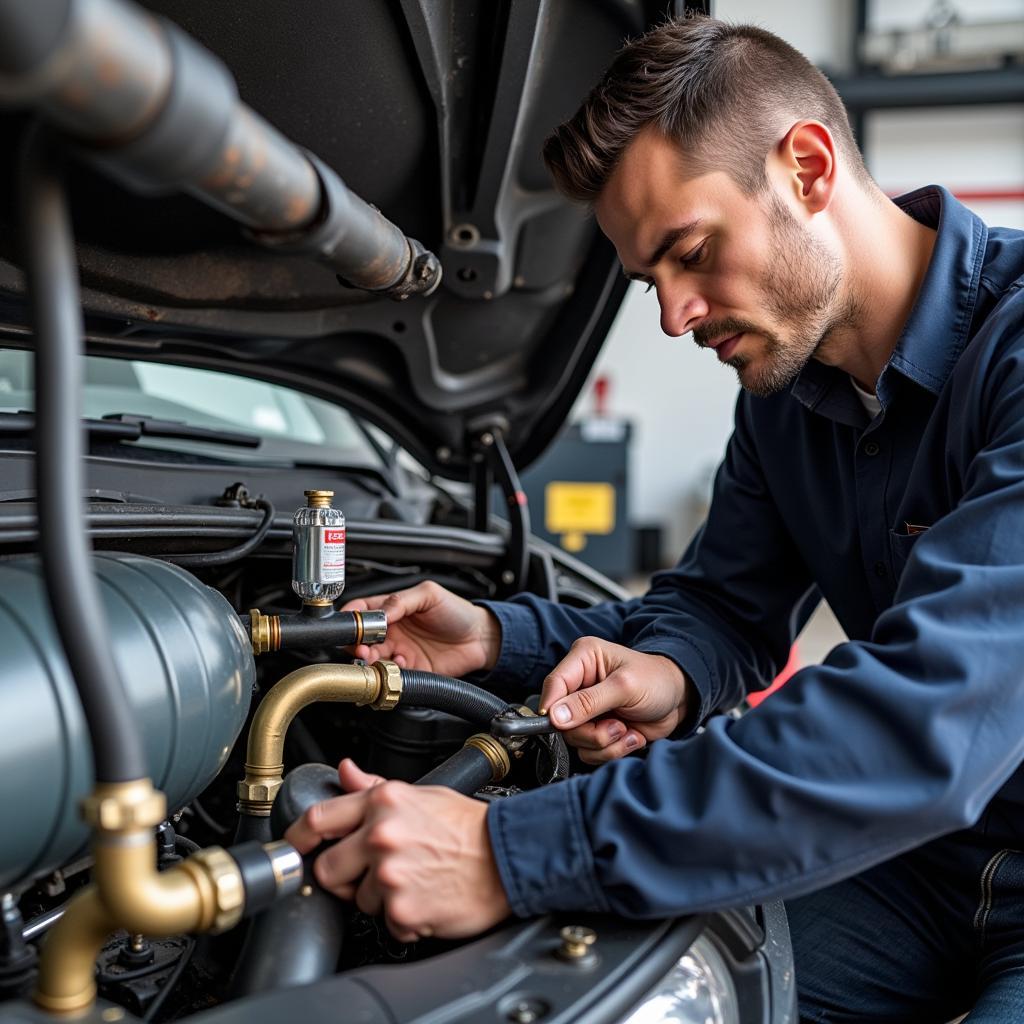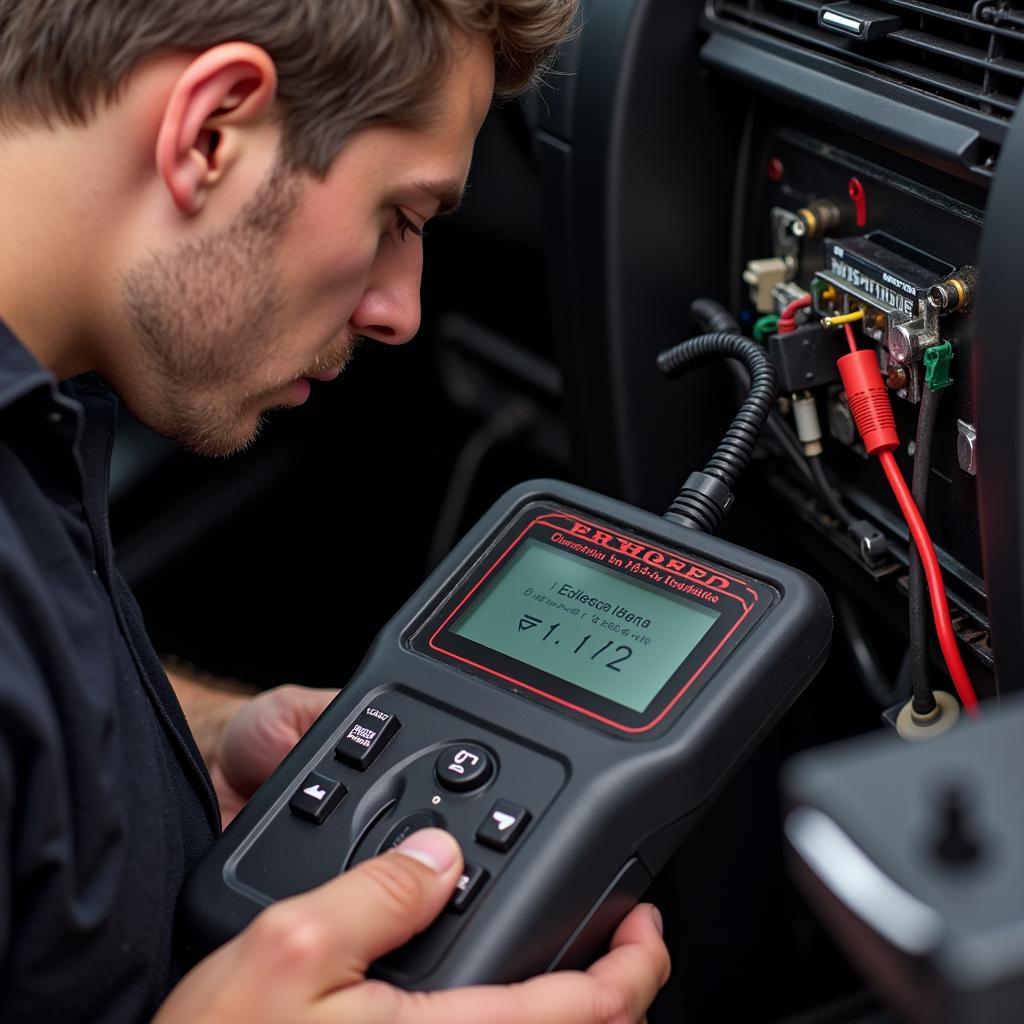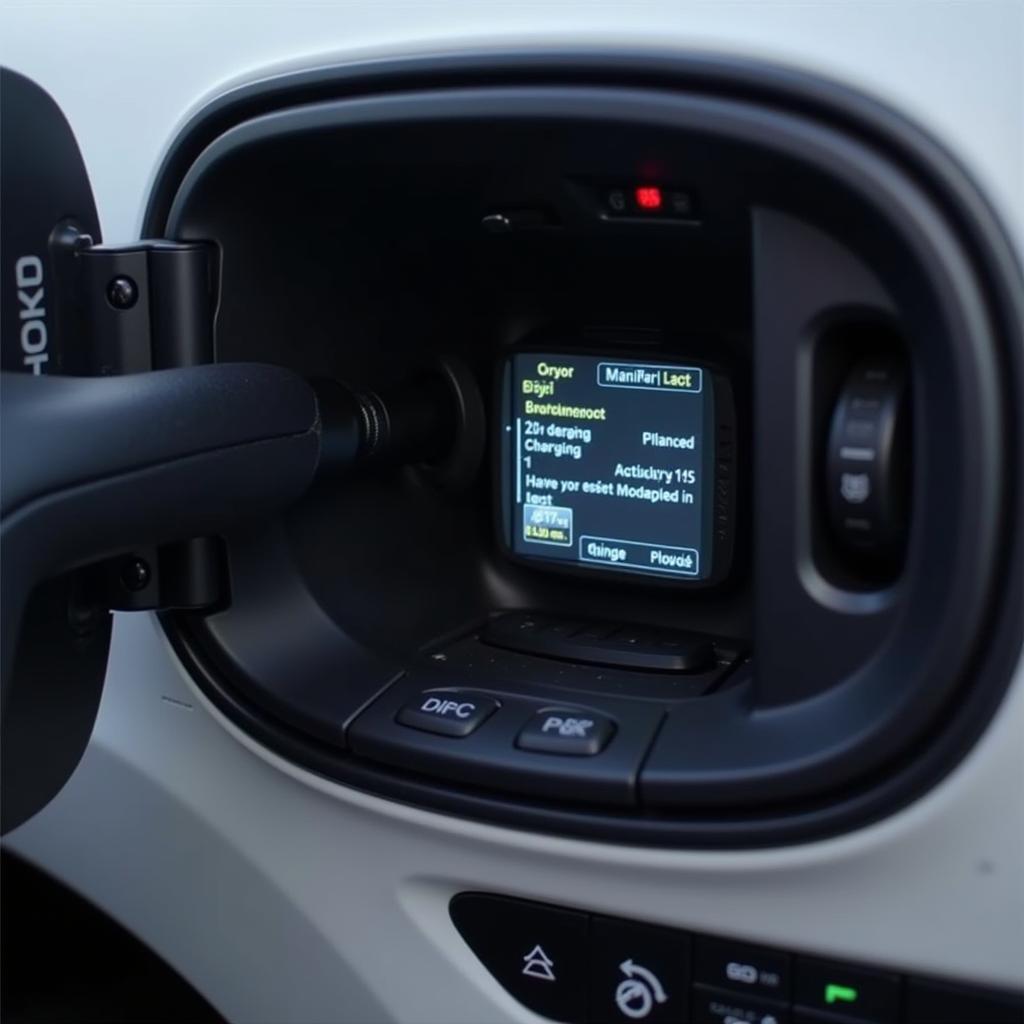Lpg Car Maintenance is crucial for optimal performance, fuel efficiency, and longevity. This guide delves into the essential aspects of maintaining your LPG-powered vehicle, offering practical advice and expert insights to ensure a smooth and cost-effective driving experience.
Understanding the Importance of LPG Car Maintenance
Regular lpg car maintenance is not just about keeping your car running; it’s about maximizing its potential. A well-maintained LPG system ensures efficient fuel combustion, reducing emissions and saving you money at the pump. It also minimizes the risk of costly repairs down the line. Ignoring routine maintenance can lead to performance issues, decreased fuel economy, and potentially damage to critical components.
Key Areas of LPG Car Maintenance
Fuel System Checks
The fuel system is the heart of your LPG car. Regular checks are vital. Inspect for leaks, check the condition of hoses and connections, and ensure the fuel filter is clean. A clogged filter can restrict fuel flow and impact performance. How often should you check? Aim for a professional inspection every 15,000 kilometers.
 LPG Fuel System Inspection
LPG Fuel System Inspection
Spark Plugs and Ignition System
LPG burns differently than gasoline, and spark plugs play a crucial role in efficient combustion. Use spark plugs specifically designed for LPG systems and replace them as recommended by the manufacturer, usually every 30,000-40,000 kilometers. A healthy ignition system ensures a strong spark, optimizing fuel efficiency and preventing misfires.
Air Filter Maintenance
A clean air filter ensures the right air-fuel mixture for optimal combustion. Replace the air filter every 15,000-20,000 kilometers or more frequently if driving in dusty conditions. A restricted airflow due to a dirty air filter can negatively affect fuel efficiency and engine performance.
Regular LPG System Service
Just like a regular gasoline car, your LPG system needs periodic servicing. This includes checking the vaporizer, pressure regulator, and other components. Professional service every 30,000 kilometers or as recommended by your LPG system manufacturer is essential.
Troubleshooting Common LPG Car Issues
What if your LPG car starts acting up? Here’s a quick guide to common problems:
- Rough idling: This could be due to a dirty air filter, faulty spark plugs, or issues with the LPG system itself.
- Poor fuel economy: Check for leaks in the fuel system, a clogged air filter, or worn-out spark plugs.
- Difficulty starting: This could indicate a problem with the LPG system, such as a faulty vaporizer or pressure regulator.
Expert Insights on LPG Car Maintenance
“Regular maintenance is the key to a long and healthy life for your LPG car,” says John Miller, a seasoned automotive engineer with over 20 years of experience. “Don’t neglect the small things, as they can lead to bigger problems down the road.”
Why Choose LPG?
LPG offers several advantages, including lower fuel costs and reduced emissions compared to gasoline. However, maintaining your LPG system is crucial to reap these benefits.
Conclusion
LPG car maintenance is an investment that pays off in the long run. By following these guidelines and addressing issues promptly, you can ensure your LPG vehicle runs smoothly, efficiently, and reliably for years to come. For expert advice and assistance, connect with us at Autotippro. Our team of experienced technicians is ready to help you with all your LPG car maintenance needs. Call us at +1 (641) 206-8880 or visit our office at 500 N St Mary’s St, San Antonio, TX 78205, United States.
FAQ
-
How often should I service my LPG system? Every 30,000 kilometers or as recommended by the manufacturer.
-
What type of spark plugs should I use for my LPG car? Spark plugs specifically designed for LPG systems.
-
What are the signs of a faulty LPG system? Rough idling, poor fuel economy, and difficulty starting.
-
How can I improve my LPG car’s fuel efficiency? Ensure regular maintenance, including air filter and spark plug replacement.
-
Is LPG car maintenance more expensive than gasoline car maintenance? Not necessarily. Regular maintenance for both types of vehicles is comparable.
-
What are the environmental benefits of using LPG? LPG produces fewer emissions than gasoline, contributing to cleaner air.
-
Where can I find a qualified LPG car mechanic? Contact AutoTipPro for expert assistance and service.







Leave a Reply